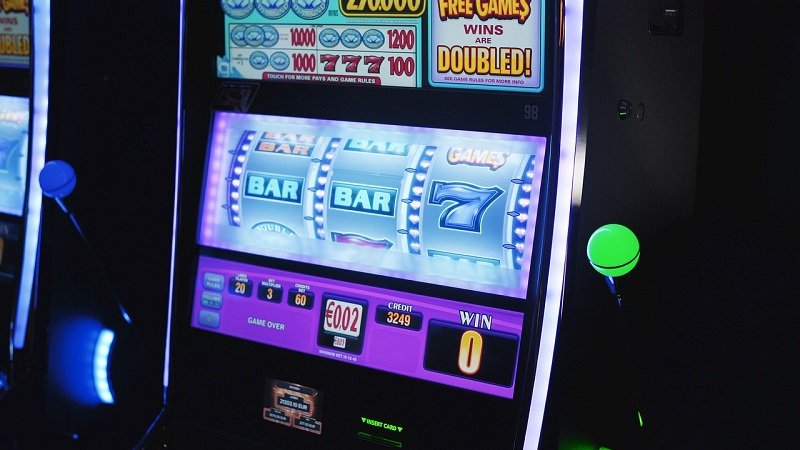No deposit slot machines are one of the easiest and most popular games to try out for free in casinos. Players don’t have to invest a single penny and play with playmoney instead of real money.
How do slot machines work?

Source: pixabay.com
Every player who was determined to win at any cost has asked this question. In theory, understanding the slot machine itself should make it possible to create strategies that lead to guaranteed winnings. In practice, this is unfortunately not the case. At the core of every slot machine is a random number generator. For this reason, it is not possible to develop a strategy that guarantees a win. You cannot influence the behavior of slot machines in any legal way.
Best online slot machines
How slot machines work
Modern slot machines operate by spinning reels. These are activated by the player pressing a button. The number of reels varies depending on the machine, developer, and game type. Older versions typically have only three reels, while newer ones usually feature five. Some machines even offer nine rows of symbol reels, but this type is not widely available in the Czech Republic. As mentioned earlier, the key function is handled by a random number generator. The result of the generator is called the “payout ratio”. This ratio is set during the machine’s manufacturing process. The payout level is defined by the casino owner’s requirements and is regulated by Czech legislation. The law sets a minimum threshold that must be met. Aside from the payout ratio, other factors influence the chances of winning. The number of reels, symbols, and potential paylines are details a player should know beforehand. These not only impact the potential outcome but also affect the fun and experience of the game for many players.
What happens inside?
The reels of a slot machine contain fields with special symbols. Each of these symbols has a specific value. When the reels stop in a particular position, the player wins. On some machines, you can even choose which symbol has the highest value. However, this doesn’t affect the mechanics of the game. The entire process begins when the player presses a button (or pulls a lever in older machines). A computer with a built-in random number generator selects a number corresponding to a winning or losing field. Most numbers are, of course, assigned to losing combinations. The actual spin is determined based on numbers representing specific symbols. The mathematical module translates the generated number to determine where the reels should stop. So the machine already “knows” which symbol will appear before the reels stop. The largest number of values within the generator’s range is assigned to symbols located right next to winning symbols. This significantly increases the chances of landing near a win, creating a sense of excitement and the impression that the win was just barely missed. The entire process repeats with every spin. Your previous games have no effect on the current one. Your number of past wins or losses does not influence the next spin in any way. The only factor that plays a role is time. The generator produces thousands of random numbers every second. So starting the machine a second earlier or later will always yield a different result. However, there’s no way of knowing whether this would have improved your chances or not.
Popular online casinos with slot machines
How does playing slot machines work?
The game itself is very simple. The vast majority of slot machine games operate on the same principle, and none of them require players to learn long and complicated rules. Playing slots begins by selecting the bet amount that the player wants to wager, followed by pressing a button or pulling a lever. This sets the reels in motion, which stop after a short period and display a combination of symbols the player has landed. The reels feature various symbols of greater or lesser value. If these symbols create a winning line, the player wins. Each spin is completely unrelated to the previous one. For this reason, you cannot assume that a machine is “primed” to pay out or that a win is approaching just because none has occurred for a while.
Are slot machines subject to any control?
Yes, modern slot machines are subject to strict operational audits. These controls are carried out not only by the casino itself but also by the state. Proper functionality of all machines is also in the interest of the casino owner, primarily to maintain their license. For example, if incorrect RTP (return to player) values were found, it could result in serious issues and penalties for the operator responsible for the casino’s operation.
How do casinos make money?
The answer to this question should be understood from a long-term perspective. The key value here is the so-called payout ratio. This tells us the percentage of money returned to players versus the percentage kept by the casino. The payout ratio is regulated by law. RTP is the term used for the same value from the player’s perspective. In this case, we are not interested in how much the casino earns, but how much is returned to the players. This data lets us calculate the minimum return on deposits over the long run. It is important to remember that the casino always has the advantage over the player. Even if this is just a small percentage of all deposited amounts, the casino always receives some share.







Discussion, comments and your experiences
Share your opinion, ask a question, or offer advice to others in the moderated discussion. Editors also participate, but they respond based on their current availability. If you expect a direct response, we recommend using email communication instead.